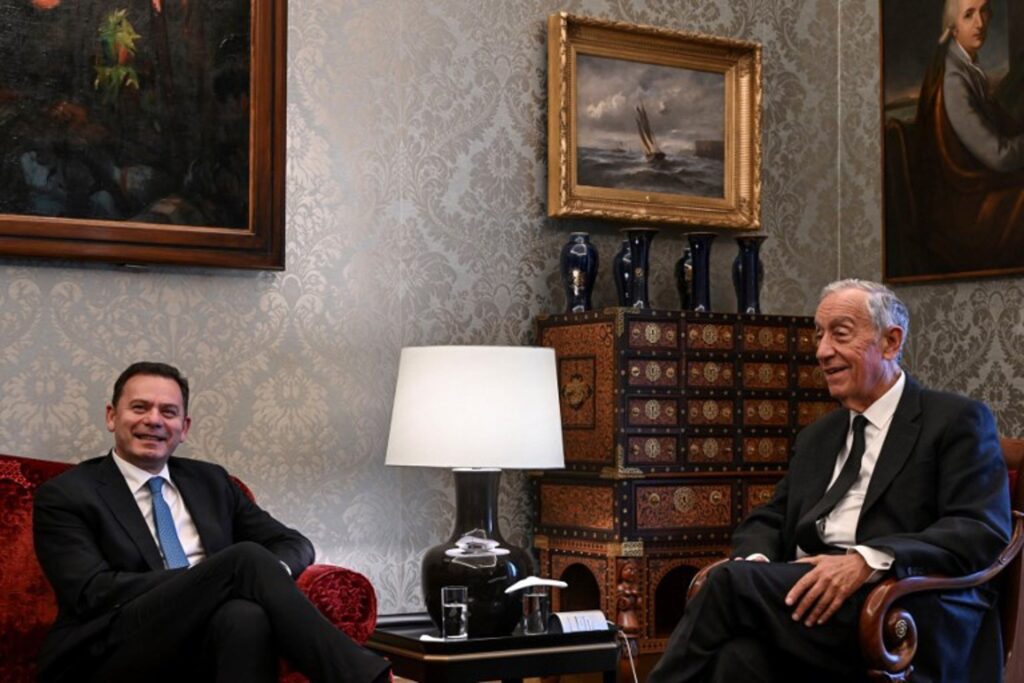Portugal’s newly appointed Prime Minister Luis Montenegro announced his government team, lacking a stable Parliamentary majority.
Last week, Montenegro, a 51-year-old lawyer by training, was invited to form an executive team following his narrow victory in the March 10 legislative elections. He submitted a list of 17 executive members to President Marcelo Rebelo de Sousa before leaving the presidential palace without providing a statement to the media.
Montenegro’s team features seasoned politicians in key ministerial roles such as Finance, Economy and Foreign Affairs, as reported in a presidential statement.
MEP Paulo Rangel will serve as the new head of Portuguese foreign affairs, while Joaquim Miranda Sarmento, former head of Montenegro’s parliamentary group, is entrusted with the Finance portfolio.
Pedro Reis, former head of the agency for promoting exports and foreign investment, has been appointed to the Ministry of Economy.
After eight years under socialist rule, the new government team, which includes seven women, will take office next Tuesday and present its programme to Parliament the following week.
Having firmly ruled out any agreement with the far-right, Montenegro faces a precarious balance with his government after the close electoral victory.
The AD, winning the legislative elections with 28.8% of the votes, holds 80 out of 230 seats, compared to 28% of votes and 78 seats for the Socialist Party, while the far-right party Chega (Enough, in Portuguese) dramatically strengthened its position as the country’s third political force, jumping from 12 to 50 seats.
This political fragmentation could lead to instability, as demonstrated by the election of the new parliamentary president.
Hardly invested, the Parliament found itself in a deadlock, the deputies failed to choose their president before reaching an agreement on Wednesday for a presidency shared between the two major parties.
On the economic and financial front, the new government will however benefit from the position inherited from the socialist government, with historically low unemployment, growth exceeding the euro zone average and a budget surplus of 1.2% of GDP.
This is only the second time since the 1974 Carnation Revolution, which Portugal will celebrate the 50th anniversary of in a month, that the Portuguese government has achieved an annual surplus.
Outgoing Prime Minister, socialist Antonio Costa, who met with his successor on Wednesday to prepare the transition, stated he’s leaving power with "a sense of fulfilled duty", despite some areas where he would have liked to have "made more progress", such as healthcare.

